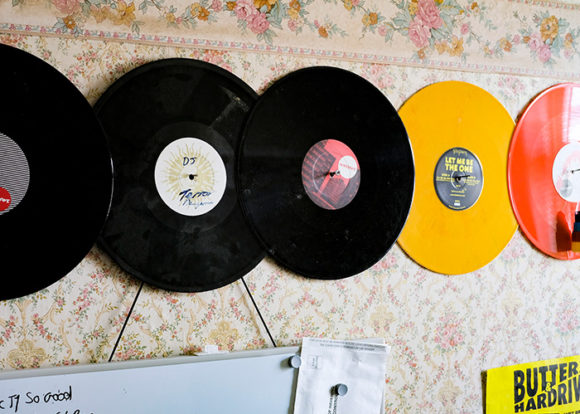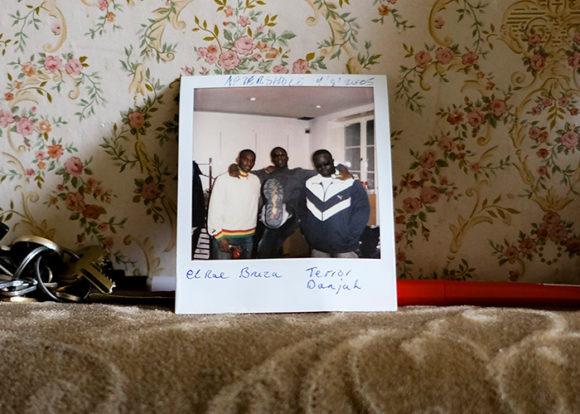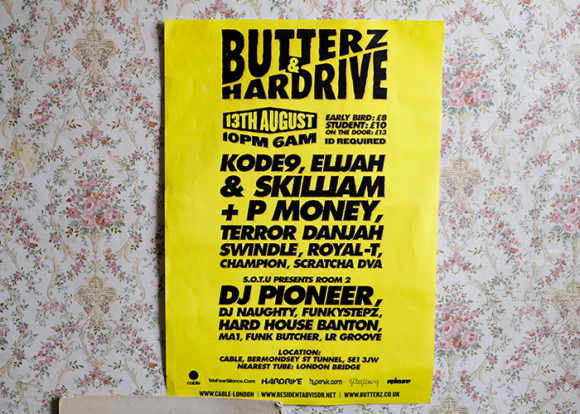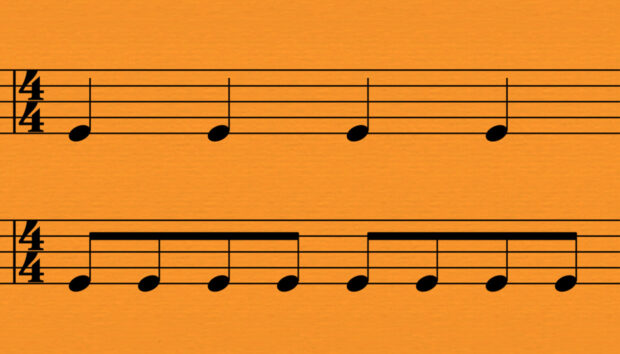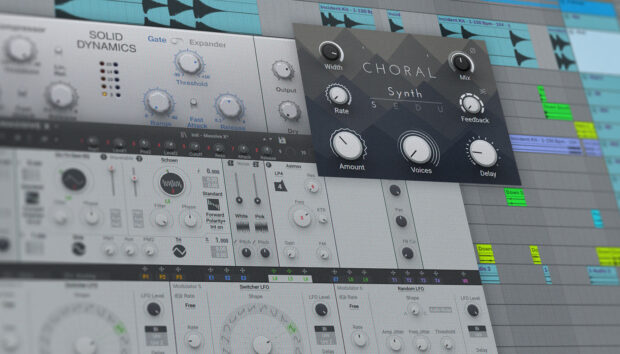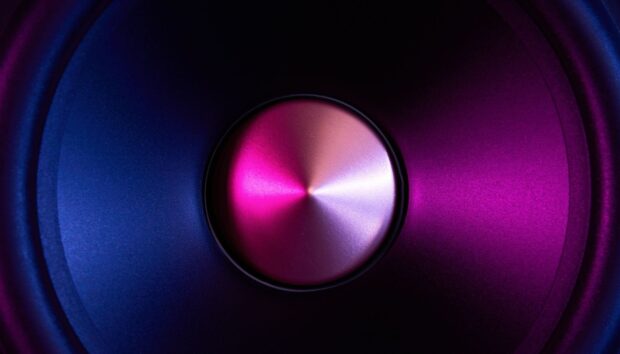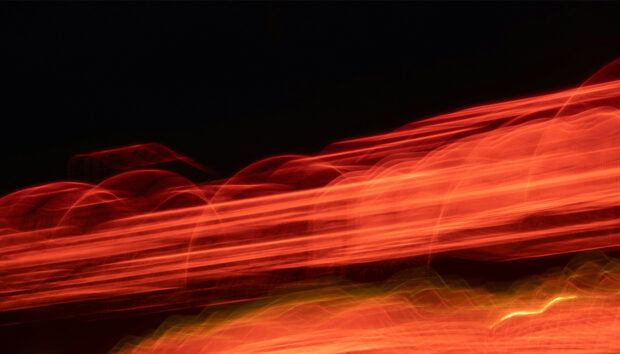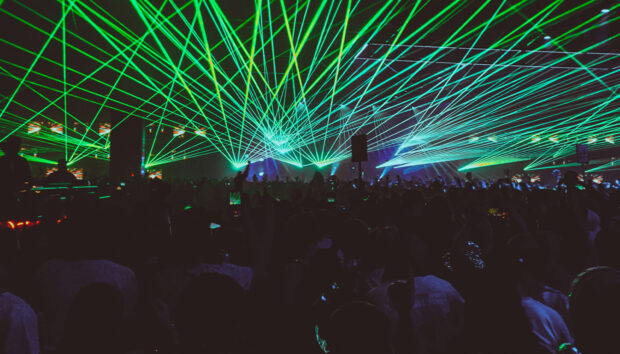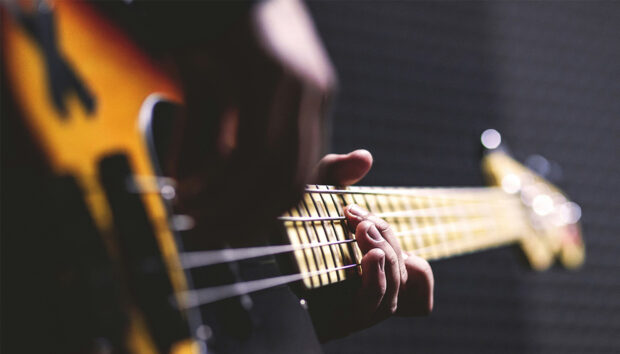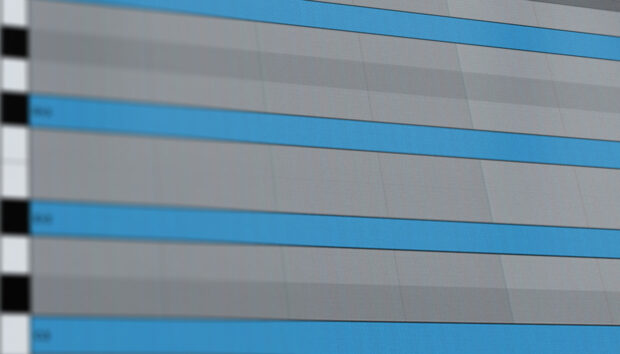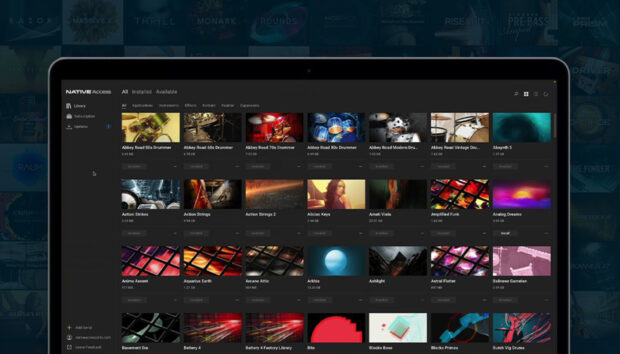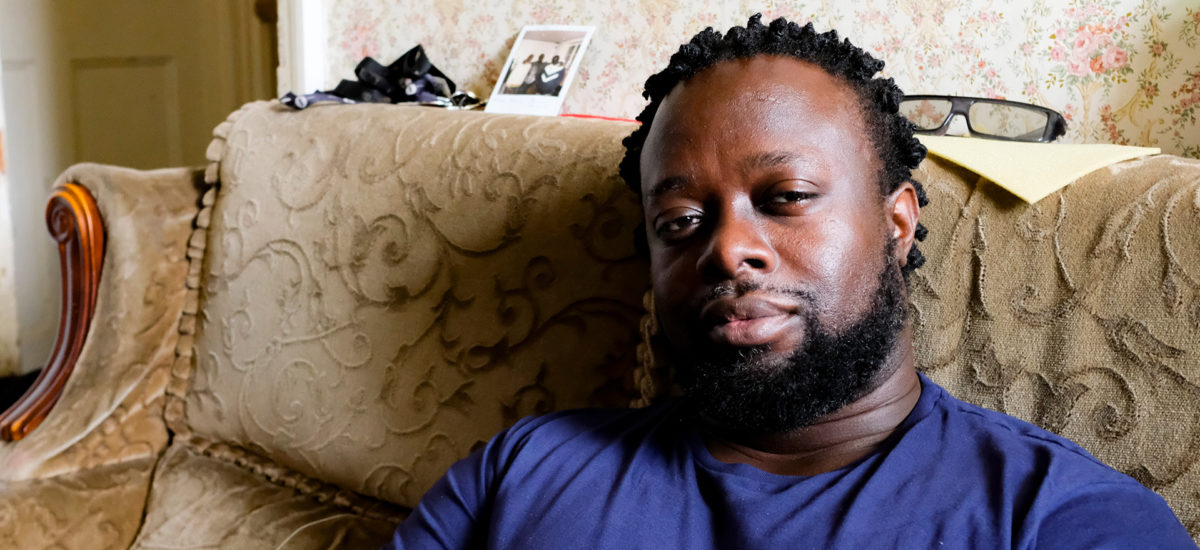
East London producer Terror Danjah is a heavyweight in the UK scene. With a career stretching back to the underground’s halcyon days of drum and bass and later grime, he’s revered industry-wide for sharp productions which pendulum between stripped back, biting war tunes and sultry, layered R&B. All with the instantly recognisable Terror Danjah tag. Now, he’s back with the release of ‘The Scene Vol. 1’. Created alongside friend and collaborator Nii-Teiko, it’s a cinematic, spacey three-parter exploring the world of 140bpm, signalling new horizons for Terror Danjah who continues to be one of the best in the game.
Your use of samples is second to none. So, when you’re going through the libraries and looking for something that fits the Terror Danjah sound, what catches your ear?
Terror Danjah: There isn’t a specific method to the madness. It’s more a background thing. My family is from Jamaica and I grew up surrounded by reggae, soul and early disco, so I like a lot of the old soul stuff, revival and edgy drum and bass tunes. I still listen to dancehall, although it’s not as good as it used to be. I didn’t think about it until recently, but when I’m picking sounds and I’m searching through libraries, it’s often something that reminds me of my childhood, something I grew up listening to or something I’ve heard in the past. I don’t sit and there and think, ‘I’m gonna make this today’. I don’t have a thought process. I just start manipulating it my way. These days, I use more sweet and lush sounds, then I might add a couple of rough sounds to make it more edgy. I use Kontakt for the banks a lot – Exhale and most of the strings stuff; Action Strings, Session Strings. I really like those. It’s important for me to be able to use all those sample packs and not to be limited.
Can you talk us through the making of this EP?
TD: Nii- Teiko is the guy.
Nii-Teiko: Maschine is where it all started. I only use Maschine to make tunes. I made the core tunes on Maschine back in 2015. I had a studio in my shed and I would go there and just try and create. I would spend 20 minutes trying to make something and then switch to the next idea. That’s what I like about Maschine – it’s like writing ideas down one page at a time. It allows me to break things down into scenes, which is, funnily enough, the name of the project. Anyway, one day earlier this year I went round to Terror’s house. I had my Maschine with me and he asked me to play some of my old stuff. We hooked the speakers up and I was trying to think what my best tunes were – I know that his standard of production is high – very high – and I came onto these old tunes. He was like, ‘What’s that? Send me that!’ So I bounced out the stems and he built around them and embellished them.
TD: He’s got mad swings. He just sent me the stems and I tightened them up a little bit while still leaving a lot of the looseness in them.
NT: Terror just terrorised them. He turned them into something else. To me, it was very aggressive but he has a totally different ear to me. He heard the groove in them. It’s still a trip hearing them how they are now.
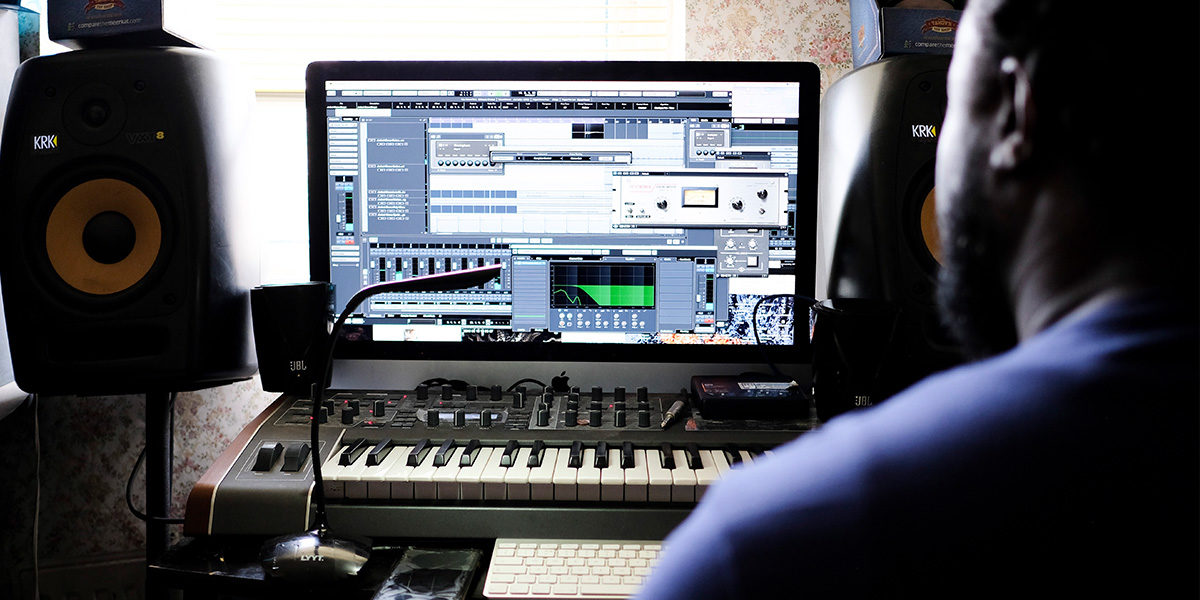
What did you start out producing on?
TD: I had a PC and I started using Cubase. I still use Cubase now – I’m loyal. If it’s not broken why fix it? I’ve tried other programmes but I just don’t see the sense of Logic – no pun intended.
And what does your studio set up look like now?
TD: I have the full version of Kontakt – only full versions of everything for me. I’ve also got the Access Virus Ti2 Keyboard at home. I take everything apart on Cubase and I work with the audio manually on the page. I couldn’t get my head around Kontakt to begin with. Intakt used to be my go-to; it’s what I learnt on and it’s the same kind of thing, so when I moved onto Kontakt I sort of knew my way around it.
What is it that you liked about KONTAKT once you became more familiar with it?
TD: I think Kontakt is really underrated. What I like is that you can go on there and play a sample – I really like the Output Exhale vocal library – and pitch it, reverse it and do all kind of effects inside Kontakt. I used it when I made ‘Creepy Crawler‘ in 2010. All the delay and the reverb I used inside Kontakt – that’s how I got the panning on that track. It’s actually how I learnt about panning because when I did my sound engineering course back in the day we didn’t have proper samplers, only the Akai S3000. I put a lot of people onto Kontakt – when Sir Spyro left Fruity Loops he started to use it as a substitute for samples.
Reaktor is really underrated, too. It’s probably one of best VSTs out there. It’s amazing but it’s like going down a rabbit hole. I told you I’ve got the Virus Keyboard at home. I bought it from a friend who used to work at Digital Village. A week after I bought it, he asked how I was finding the Virus and I was like, ‘Fam, I can’t get my head around it.’ He asked me if I knew about Reaktor, and I told him I couldn’t get my head around that, either. He said I was using it wrong – in Reaktor you make all your own plug-ins. I was like, ‘Man, why didn’t you show me this? I would’ve bought that!’ Because, obviously, Massive and Vectory were made inside Reaktor. There’s even a Virus ensemble. And the Reaktor 6 blocks as well. Crazy.
Do you make your own multi-sampled instruments or do you just use the libraries?
TD: I used to make my own but these days you don’t really need to – you’re so spoiled for choice when it comes to samples. I’ve got a little bit lazy but I should make my own because you can create unique patches. I have heard one or two tunes in the past, nothing major, where someone has used my sample and that’s almost a bit of a slap in the face. With me, though, I spend a lot of time twisting things up and manipulating them – I find that a lot of fun. I like to pitch it down, chop it up, stretch it out and reorder it to make it sound unique. For people to make it sound the same as mine, they’d have to know exactly what the sample was and by the time I’ve re-ordered it and pitched it up or down you really wouldn’t know what it was – unless you’re so knowledgeable that you know every single sample pack, which is virtually impossible.
What’s your opinion on the UK production landscape at the moment? Is it an exciting place to be?
TD: You know what? Yes and no. It’s exciting business-wise, and it’s exciting streaming wise, but every genre sounds the same. It’s almost like it’s just unified the sounds of dancehall, hip hop, drill, grime – everyone is using the same 808, the same snare and that kind of ‘anthemic’ techno sound. Slow it down and it’s one genre, speed up and it’s another – but it’s the same. You change the drum pattern, it’s dancehall. You change it again, it’s Afro-swing. You change it again, it’s grime. It just depends on how it’s mixed, what speed it is and the drums you use.
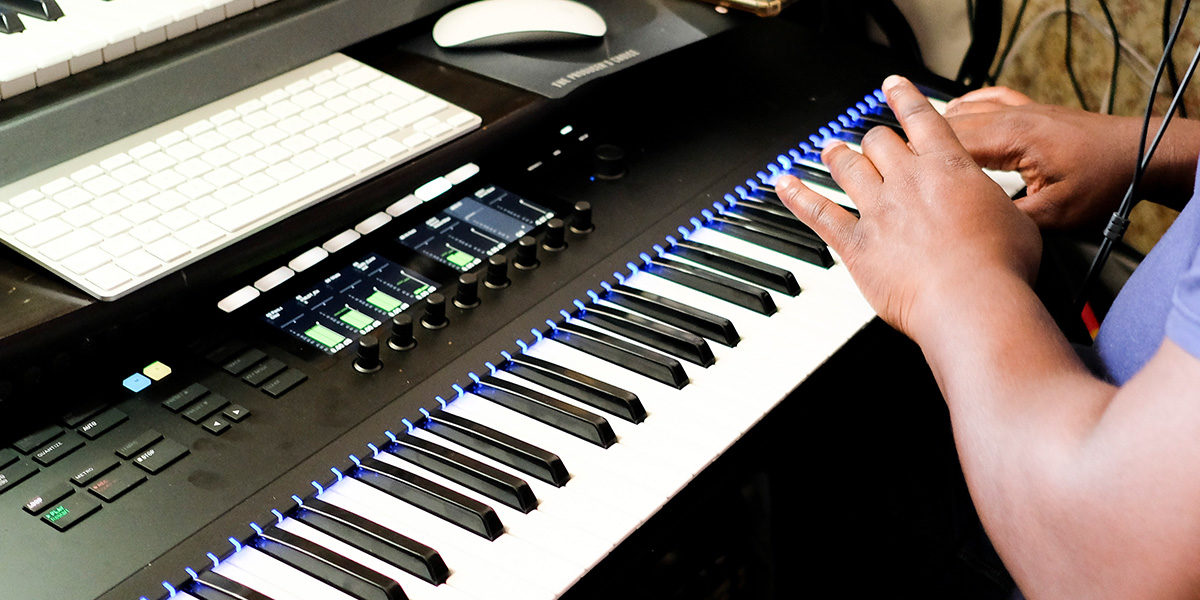
What about where your own production is right now?
TD: I feel like I do different stuff and it gets overlooked, then someone else comes and tweaks it, puts it in the current sound and they run off with it. So I’m scared to do new things. I think the person that really pioneers doesn’t benefit; it’s always the second or third. I’ve learnt that the hard way. But, I think if you scream and shout about it, you become the barber shop guy or that betting shop guy – you sound like a war veteran: ‘I was doing this when I was your age.’ I don’t want to look like that. That’s why I don’t say nothing and just say to myself: ‘Alright, be smart about it.’ I’ve just got to rethink the strategy. I’m doing a project with Krafty right now – it’s very strong. And I’m starting another project where I’m singing on one of the tunes. I’m a badman singer! I’ve sung on a lot of tunes that people don’t realise. I do a lot of songwriting and I help the artists with the flows and melody. I’ve got new stuff coming that doesn’t sound like what you would expect from me. I need to talk about that more.
What advice would you give to producers just starting out?
TD: Just go with the vibe. Every time I put my mind to something and say, ‘I’m making this’ it never comes out right. It’s like a dream. Whatever you dream, even if you’re in control of your dream for a minute, it never turns out how you expect. If you make music, the best thing to do is learn your equipment and then you know how to manipulate it. And I’m still learning – so much of making beats is still learning. I’m always learning new techniques that I can implement next time, and the time after that, and the time after that to where it becomes a sound and it becomes a trademark. That’s how production is.
Photo credits: Cecilie Tchikai








